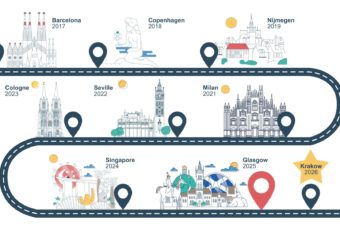FEBS Advanced Courses provide excellent opportunities to deepen your understanding of a topic, get up to speed with new developments, and make contact with others interested in the same research questions. Below, we highlight upcoming events that have registration deadlines from now up to 1 April 2022. Explore the speaker line-ups and more details on the event websites.
FEBS Youth Travel Fund (YTF) grants are available to financially support the participation of young scientists in these events.
FEBS ADVANCED LECTURE COURSES
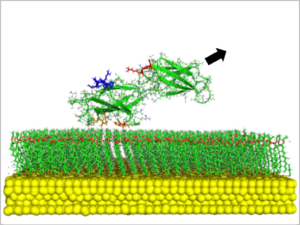 Biological surfaces and interfaces: forces at biological interfaces
Biological surfaces and interfaces: forces at biological interfaces
San Feliu de Guixols, Spain
June 19–24, 2022
biointerfaces2022.febsevents.org/
In applications that range from precision medicine to biotechnology and bioengineering, the future is behind systems that interface with the biological environment in a tailored manner, engaging well-defined signalling pathways and responses. Achieving this goal entails research into the force-induced dynamics of biological interfaces (membranes, cell–matrix and cell–cell interactions) as well as into bioengineering and biomimetic approaches at interfaces between biological and artificial systems, at the molecular and cellular levels. The objective of this meeting is to bring together experimental and theoretical/simulation researchers from diverse disciplines who are actively working on these topics and to engage young scientists at the doctoral and postdoctoral level, nucleating new ideas and new directions. (Photo credit: Chris Lorenz)
Organizers: Delphine Gourdon, Chris Lorenz, Kaori Sugihara, Andrea Salis
Deadline for applications: March 1, 2022
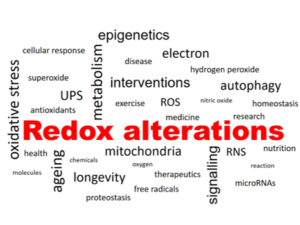 Redox alterations and cellular responses: from signalling to interventions
Redox alterations and cellular responses: from signalling to interventions
Spetses Island, Greece
September 19–25, 2022
redoxalterations2022.febsevents.org
This course will focus on examining how changes in redox signalling trigger adaptation and the crucial roles of key adaptive processes in preventing cellular degeneration. Emphasis will be given on the role of redox regulation in biological ageing and redox-related models of disease at the molecular, cellular, and organism levels. Participants will have the opportunity to interact frequently in a relaxed setting with prominent senior scientists in the field, and to present and discuss their results in poster sessions and oral presentations. The course will also provide the participants with transferable skills training sessions and career development tutorials.
Organizers: Aphrodite Vasilaki, Niki Chondrogianni
Deadline for applications: March 15,2022
FEBS WORKSHOP
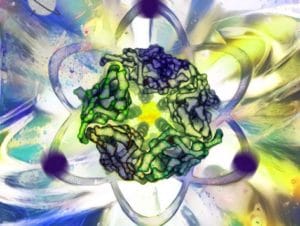 Lost in integration – probing biomolecules with electrons, photons, neutrons and magnetic spins
Lost in integration – probing biomolecules with electrons, photons, neutrons and magnetic spins
Spetses Island, Greece
May 9–15, 2022
probingbiomolecules2022.febsevents.org
The international course for primarily PhD students (but also postdocs) will include lectures as well as group discussions, journal clubs, panel discussions and posters. With dramatic developments of X-ray and neutron sources, cryo-EM, super resolution microscopy, single-molecule microscopy, NMR, and computation, the possibilities for addressing advanced problems in structural biology and molecular cell biology and physiology are on a fast move. It is increasingly important to integrate many sources of data to achieve proper models of dynamic interactions between biomolecules and how they define cell function. The workshop will address these challenges and also cover the individual methods to stimulate critical discourse and forward-looking visions of integral structural biology.
Organizer: Poul Nissen
Deadline for applications: March 1, 2022
FEBS PRACTICAL COURSE
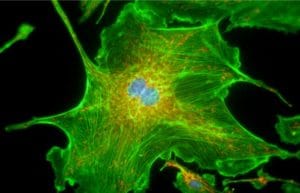 Functional imaging of cellular dynamics
Functional imaging of cellular dynamics
Amsterdam, the Netherlands
June 12–18, 2022
microscopy2022.febsevents.orgTechnological revolution in advanced light microscopy (i.e. functional imaging of molecules, development of caged compounds and biosensors) means it is now possible to directly monitor the dynamics of single molecules and numerous biosensors in living cells – increasing our understanding of how cells perceive and correctly respond to their environment in normal processes and how errors lead to disease. This advanced microscopy course for experienced graduate students, postdocs and lab technicians integrates theoretical lectures with hands-on experiments and practical experience. National and international experts will give an overview of “state-of-the-art” imaging techniques and applications in biological research.
Organizer: Mark Hink; [email protected]
Deadline for applications: April 1, 2022
JOINT FEBS/EMBO LECTURE COURSES
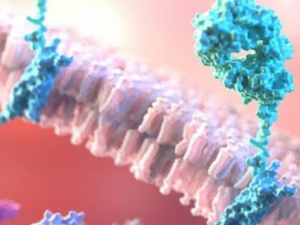 Lipids, proteins and their interactions in organelle biology
Lipids, proteins and their interactions in organelle biology
Spetses Island, Greece
May 29 – June 4, 2022
https://spetses2022.sites.uu.nl/
Biological membranes are complex structures that vary considerably in composition depending on their functions and location in the cell. A full understanding of the structural and compositional complexity of membranes, their biogenesis and their function requires multidisciplinary approaches, and thus co-operative research efforts from biochemists, biophysicists, structural biologists, geneticists and molecular and cell biologists. This course will bring together a unique set of top scientists covering this broad field in membrane and organelle biology. In addition to scholarly scientific lectures, the program also contains, as an essential element, various mentoring sessions on work–life balance, career planning, and responsible conduct of science. Moreover, the program will allow for up to 25 young scientist participants to give short oral presentations of their work. Most importantly, a small and friendly atmosphere is built to enable extensive discussions and networking opportunities between the trainees and the lecturers.
Organizers: Eefjan Breukink, Maya Schuldiner, Ulrich Hartl
Deadline for applications: April 1, 2022
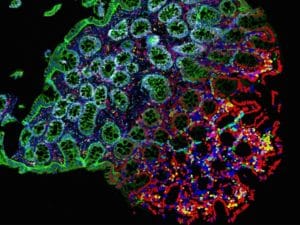 Molecular mechanisms in signal transduction and cancer
Molecular mechanisms in signal transduction and cancer
Spetses Island, Greece
August 16–24, 2022
meetings.embo.org/event/21-signal-transduction
We are living in an extremely interesting period in cancer research, with knowledge gained in the last decades now entering the clinic. Most of the successes come from our understanding of basic processes that govern cancer initiation and progression, including signal transduction. Consequently, we see that especially inhibitors to signalling molecules, in particular kinases, are entering the clinic very rapidly. Therefore, the molecular mechanisms by which signals are received by cells, transduced towards the proper targets and integrated into a biological response are amongst the most-studied areas in modern biology. In this Spetses course we are bringing together a number of true experts in the field from basic and translational oncology. The course will cover signalling by various pathways (PI3K, WNT, RAS/RAF) but also DNA damage and protein degradation signalling, the consequences of pathway deregulation for cellular processes like metabolism and damage repair, and the application or translation of this knowledge into the clinic.
Organizer: Boudewijn Burgering. Co-organizer: René Medema
Deadline for applications: April 1, 2022
For more information on FEBS Advanced Courses, click here.

